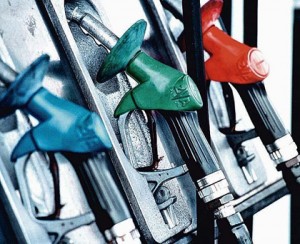There are certainly a fair few types of fuel available, and being so spoilt for choice, it can often be difficult to figure out what the differences are and how they apply to different vehicles.
In this article we will provide a run-down of the various types of fuel on the market today, as well as help you to determine the right one for your vehicle.
 photo credit
photo credit
What is RON?
More often than not, vehicles will use unleaded fuels; these are the most common variety of fuel and they come as either standard unleaded or ULP, premium unleaded or PULP, ultra premium unleaded or UPULP, or E10, which is ULP blended with 10% ethanol.
All unleaded fuels have what is referred to as a Research Octane Number or RON number, this metric is used to gauge a fuel’s resistance to pre-ignition.
Understanding the RON of unleaded fuels is important in determining which is right for your vehicle because simply using a high-octane fuel is not enough to improve your vehicle’s performance unless the engine is specifically designed for this:
- Unleaded or ULP has a RON rating of 91 and is designed for use in all vehicles registered in Australia since January 1st 1986. It is also suitable for some pre 1986 vehicles; however the owner’s manual should be used to confirm the application.
- Premium or PULP typically has a 95 or 96 RON rating and is most commonly used in European cars.
- Ultra premium or UPULP is less-commonly used due to its RON rating of 98. Cars requiring a high-octane fuel like UPULP will usually be performance or high-speed vehicles.
- E10 can boost fuel efficiency by a few percentage points but it should not be used in pre-1986 vehicles due to the ethanol content.
If you are still unsure what the right unleaded fuel for your vehicle is, consider referring to the manufacturer’s handbook and you should find the recommended RON rating.
Other Fuel Types
Diesel is a highly-refined fuel with very low sulphur levels, making it suitable for heavier commercial vehicles and fleet cars, although it is becoming more widely-used amongst consumers with passenger vehicles.
Liquefied petroleum gas or LPG is a relatively low-cost fuel consisting of a butane-propane blend. You’ll need to own a vehicle that is specifically designed to take LPG; the alternative is to have your car converted to run a bi-fuel system that can tolerate standard petrol as well as LPG.
Last but not least is E85; this fuel is petrol blended with 85% ethanol and must only be used in vehicles which are specifically designed for it. This is not a particularly common type of fuel and it offers fairly poor fuel mileage so at this stage it isn’t really worth considering.
If you’re still at a loss as to what kind of fuel you should be using, Bartons Hyundai, with more than 66 years of experience in the motoring industry, will be more than happy to alleviate your concerns and answer any questions you might have.
